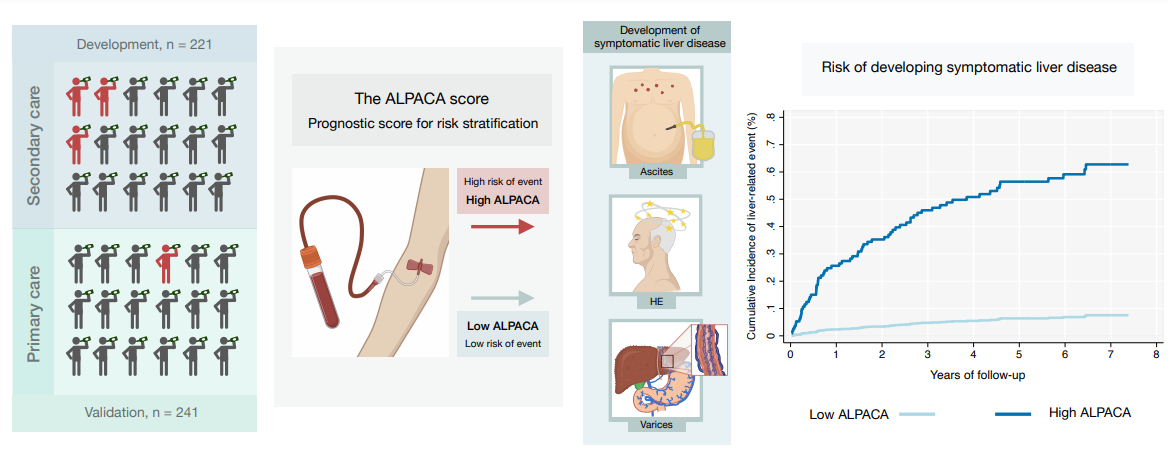Blood test can predict future liver disease
Researchers from Center for Liver Research have developed a new blood-based algorithm, the ALPACA score, that can accurately predict which patients will be hospitalized with liver disease within the next five years.
Worldwide, 2.4 billion people are current drinkers and alcohol-related harm to the liver correlates with drinking volume. However, not everyone at risk will develop liver disease, and finding the right patients at the right time is challenging. The routine liver function tests available in primary care have poor diagnostic performance. Consequently, three quarters of patients are diagnosed with alcohol-related liver disease when demonstrating complications to cirrhosis, which is almost too late.
Researchers from Center for Liver Research have developed a new blood-based algorithm that can predict which patients that later will develop symptomatic liver disease. The algorithm is called the ALPACA score, and it consists of a combination of normal liver function tests, and then a biomarker that measures the formation of scar tissue, as a marker of development of liver disease. The researchers hope that the ALPACA score, in the future, can be used to find patients earlier, and to refer the right patients from the general practitioner to a liver clinic at the hospital.
The article has just been published in Liver International, and can be found here: http://onlinelibrary.wiley.com/doi/full/10.1111/liv.15595
